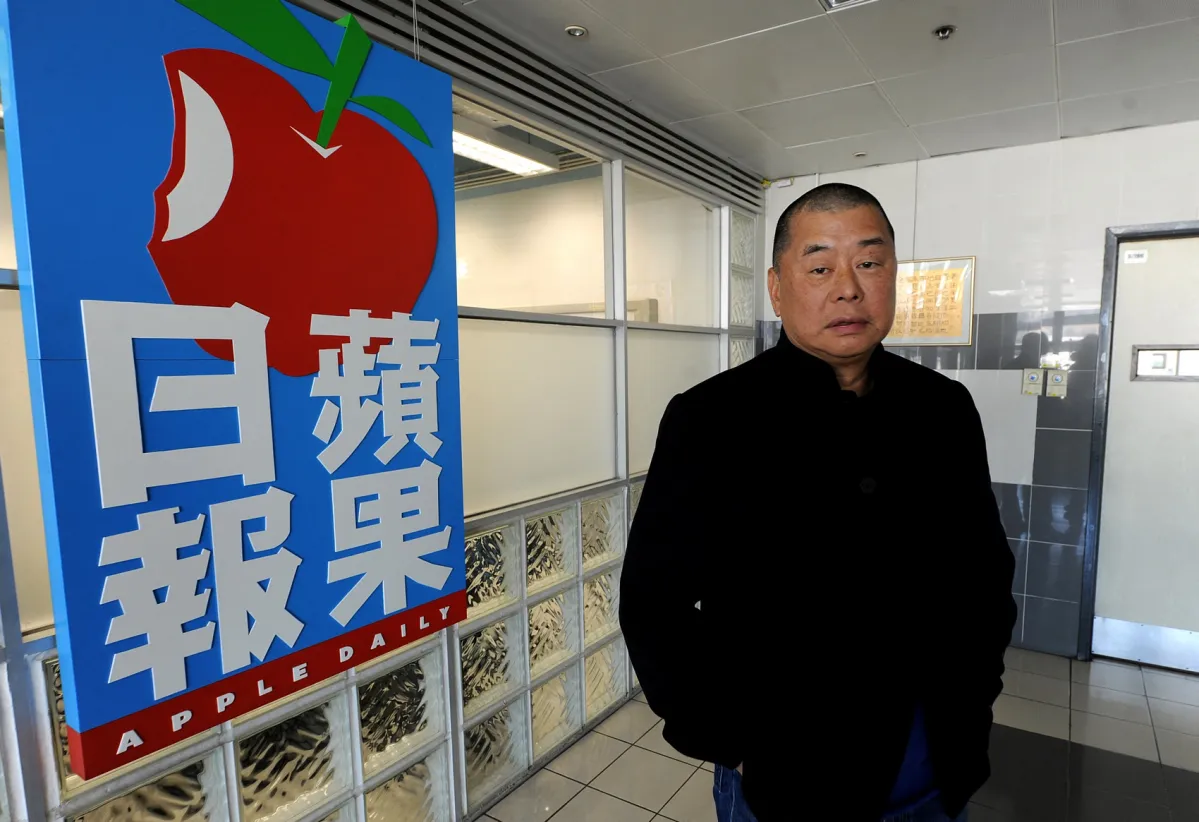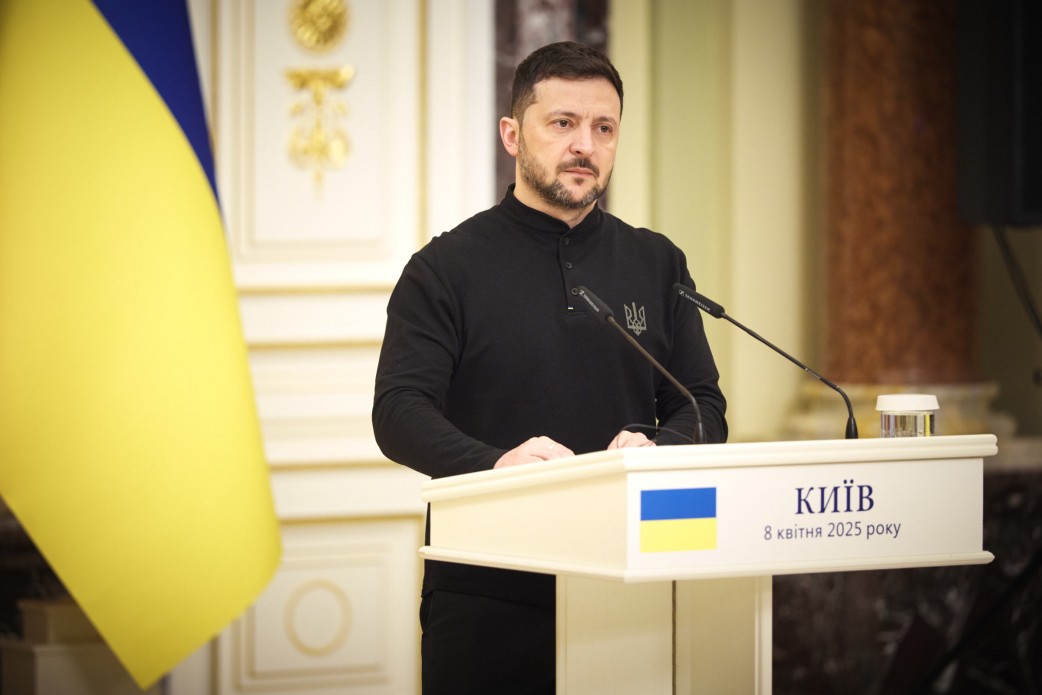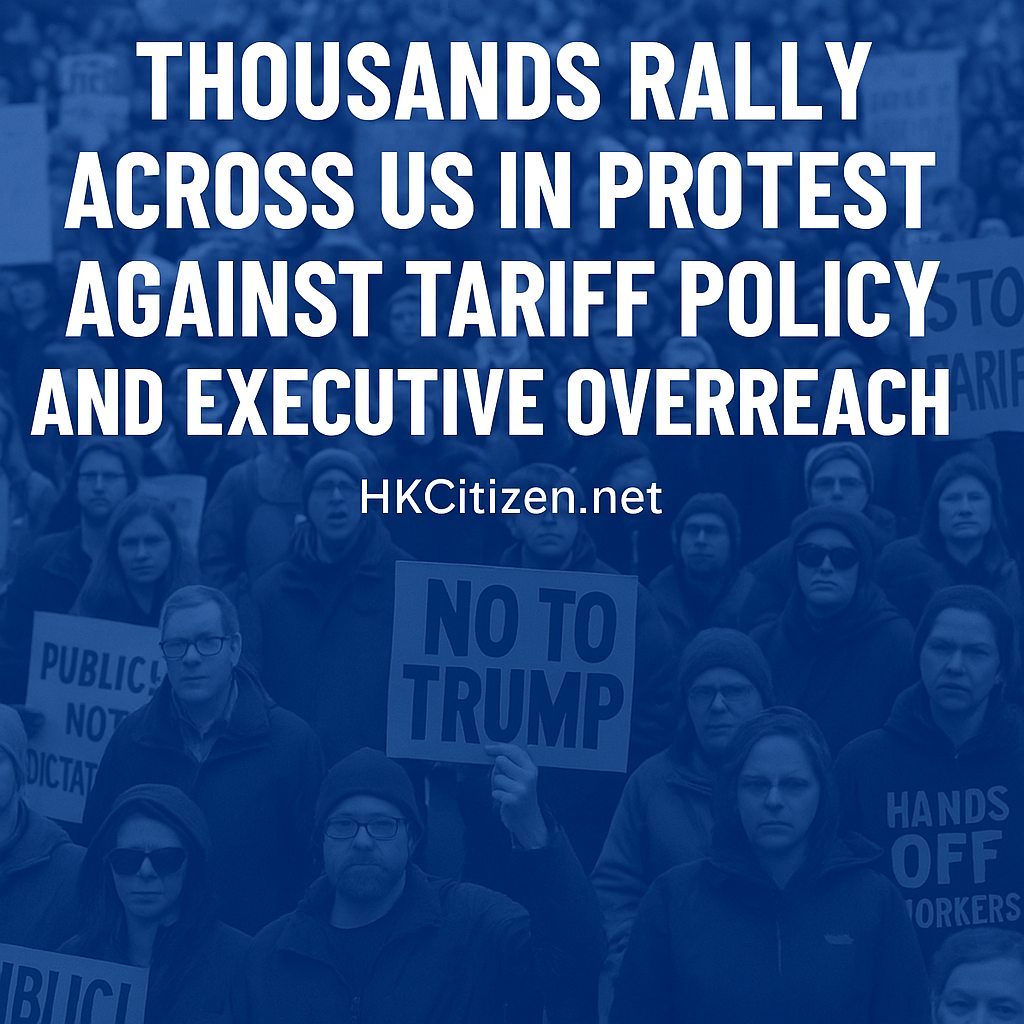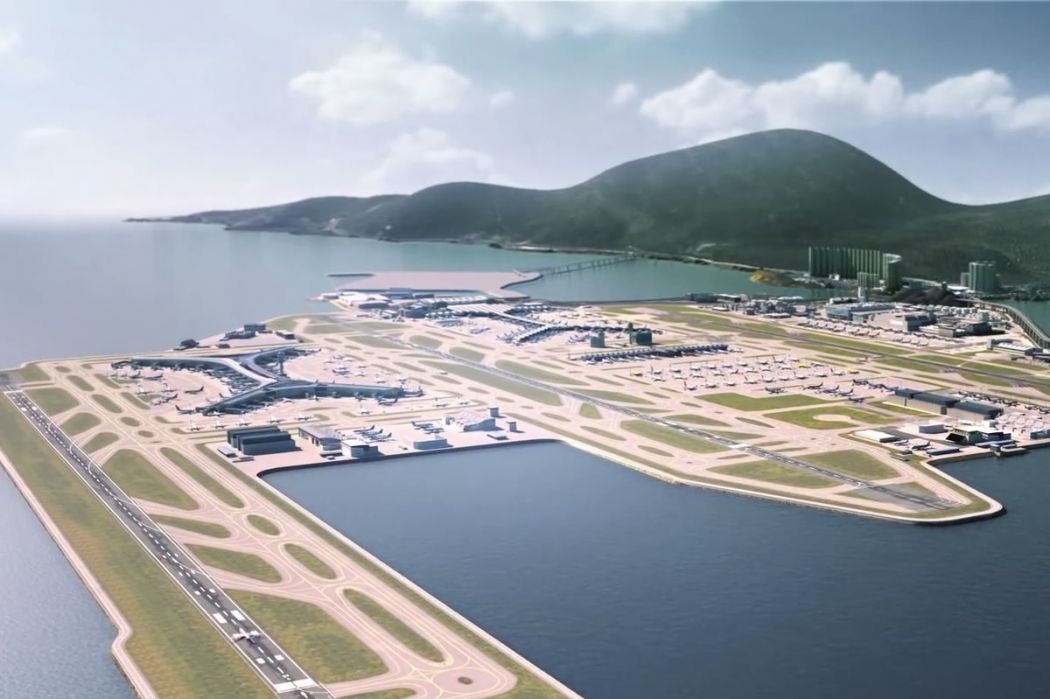Washington, D.C. – The United States Congress has proposed renaming the street outside the Hong Kong Economic and Trade Office (HKETO) in Washington, D.C. to “Jimmy Lai Way”, in honour of the imprisoned pro-democracy media tycoon. Unsurprisingly, this has triggered a predictably furious reaction from both the Hong Kong and Peking governments, reigniting tensions over the city’s political situation.
Hong Kong’s Expected Outrage: The Longer the Statement, the Angrier They Are
Within hours of the proposal surfacing, the Hong Kong government released an officially indignant statement, filled with familiar phrases such as:
“We strongly oppose such a blatant political stunt by the United States to interfere in Hong Kong’s internal affairs… This is an unacceptable act that severely violates international norms…”
As history has shown, the length of the statement is usually a good indicator of how annoyed officials are.
Countermeasures? Perhaps a Ban on Big Macs?
Despite the outrage, Hong Kong’s ability to “retaliate” is rather limited. If past responses are anything to go by, we can expect a grand announcement along the lines of:
“We reserve the right to take countermeasures.”
Of course, such countermeasures often involve banning things that no one really asked for, like British cats or BBC documentaries. Perhaps, in a drastic move, Hong Kong could start strictly vetting American films for “problematic political messages” (which, let’s be honest, is already happening).
Will They Move the Trade Office? But Where?
One dramatic response could be to shut down the HKETO in Washington or relocate it to a “friendlier” city. Houston, Texas, perhaps? After all, it’s closer to oil refineries, which might help fuel all the angry press releases they’ll need to write.
However, dismantling a trade office in protest would be rather counterproductive—it would signal that Hong Kong’s economic ties with the US are practically non-existent.
Summoning the US Consul: Another Useless Gesture?
To further escalate the matter, Peking’s representatives in Hong Kong might summon the US Consul General for a scolding session. The conversation would likely include a stern warning about “damaging Sino-US relations.”
But let’s be real—US-Peking relations are already as warm as a British summer. A bit of diplomatic hand-wringing won’t change much.
Peking’s Expected Playbook: Sanctions No One Cares About
Not to be outdone, Peking’s Foreign Ministry is likely to hold an angry press conference condemning the decision. This will probably be followed by the “ultimate punishment”—sanctioning US lawmakers who supported the street renaming.
Past experience suggests that these US politicians will take their new “sanctioned” status as a badge of honour, gleefully announcing it on social media with captions like:
“I am proud to stand with the people of Hong Kong!”
Since these politicians never had any plans to visit Peking or Hong Kong anyway, the sanctions amount to nothing more than a symbolic tantrum.
Will Peking Retaliate by Renaming a Street?
To reciprocate, Peking might consider renaming the road in front of the US Embassy in Peking to something equally provocative—perhaps “Donald Trump Avenue”, just to stir up more division in American politics. If nothing else, it would certainly amuse the former president.
The Bigger Picture: A Symbolic Gesture With No Real Impact
While this street renaming will undoubtedly spark a diplomatic media circus, the actual impact remains minimal:
• Jimmy Lai remains in prison, with no sign of release.
• US-Peking relations are already in freefall, so this won’t make things much worse.
• The HKETO staff in Washington still have to go to work—just with the added hassle of telling Uber drivers, “Please drop me off at Jimmy Lai Way.”
In the end, the only real losers in this situation are GPS navigation system engineers, who now have yet another street name to update.




